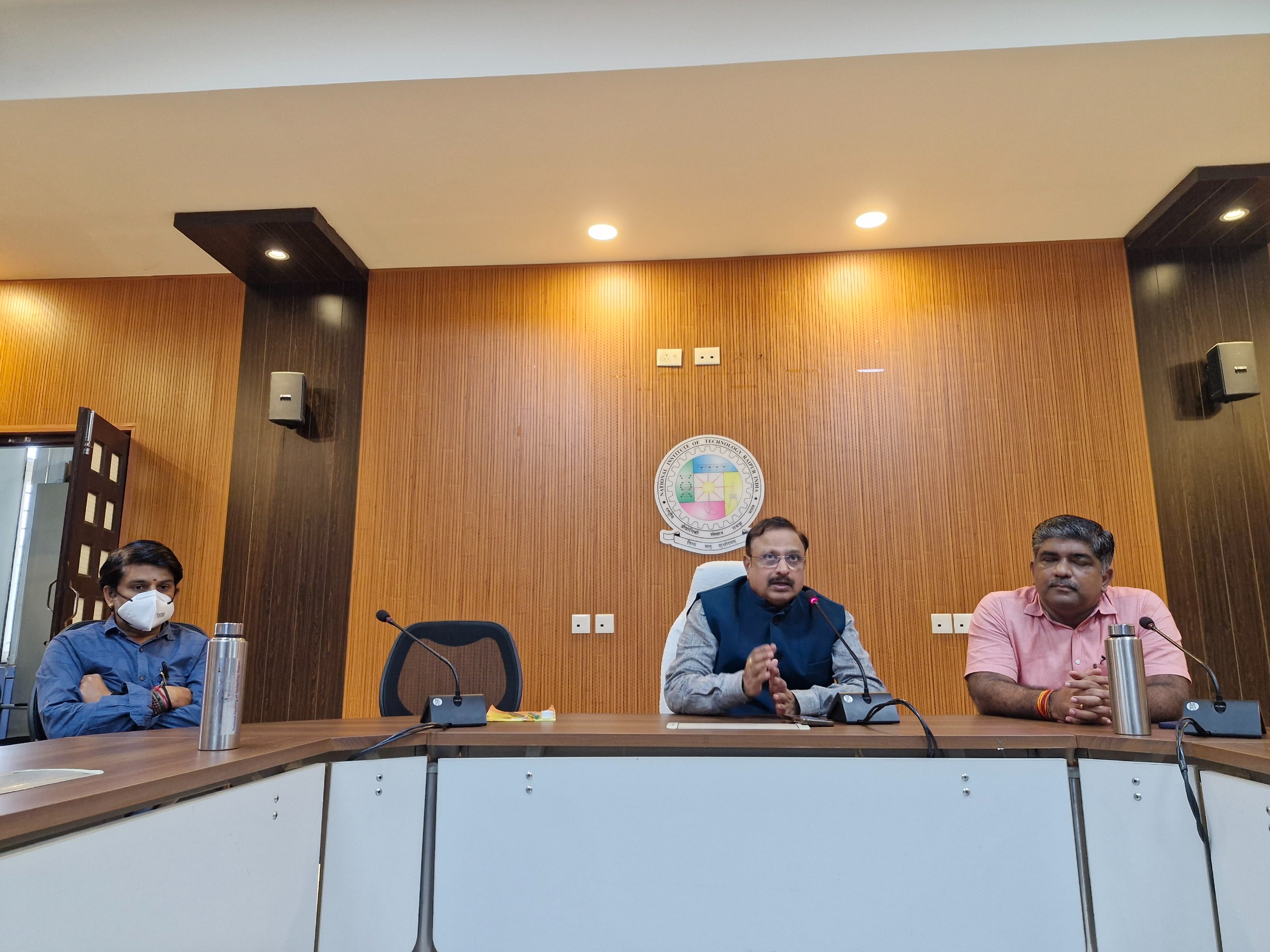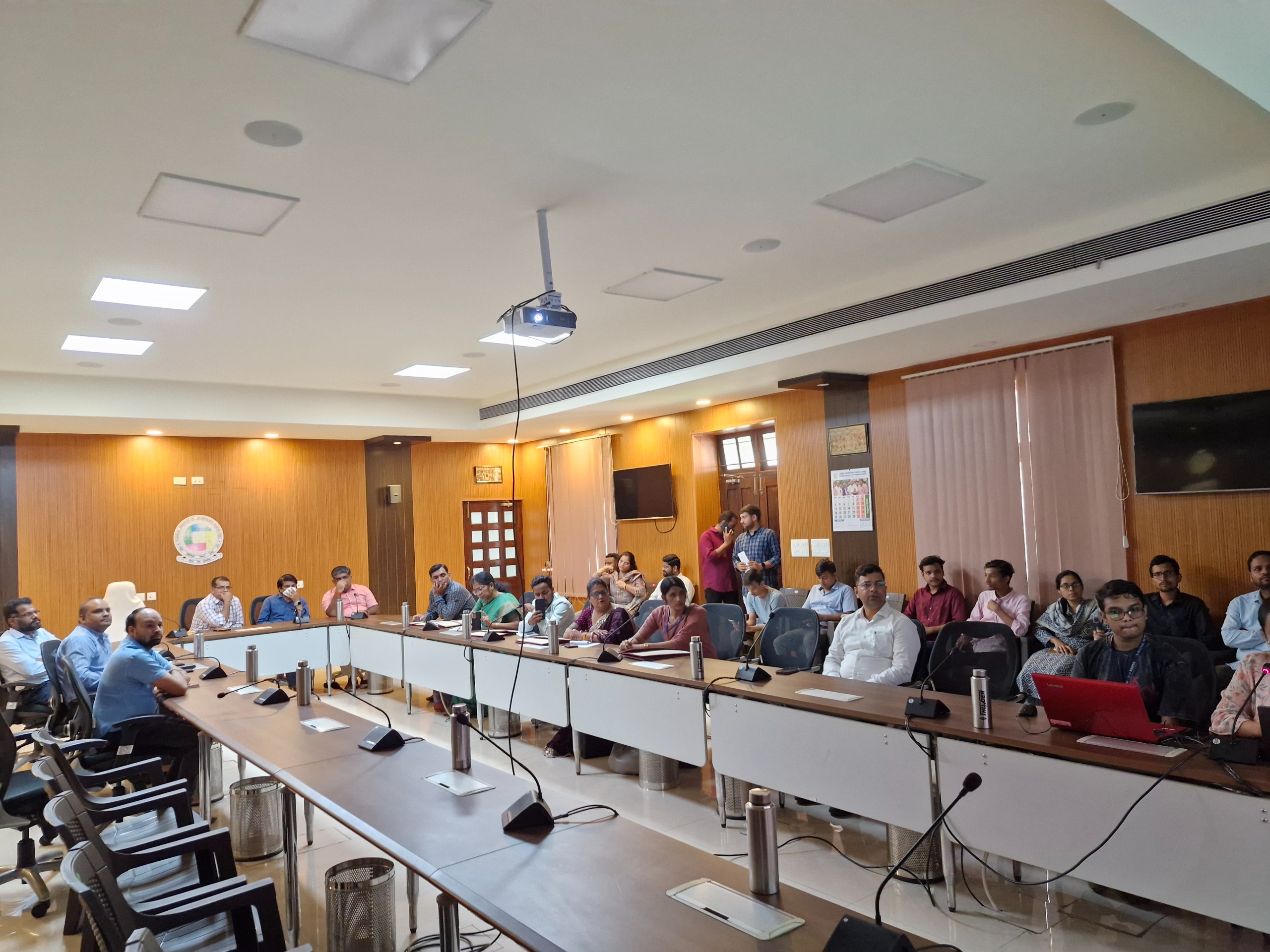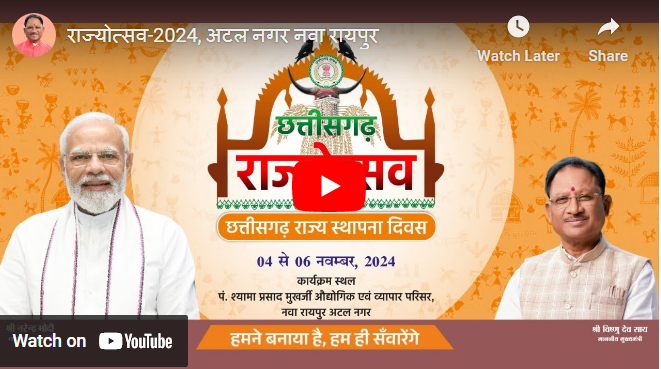Raipur (thestates.news) | The National Institute of Technology (NIT) Raipur on Friday organised an orientation programme for Chhattisgarh-based participating institutions under the Government of India’s Unnat Bharat Abhiyan (UBA), a flagship initiative aimed at empowering villages through higher educational institutions.
The programme opened with the traditional lighting of the lamp, followed by a formal welcome of dignitaries. Prof. N. V. Ramana Rao, Director, NIT Raipur, presided as Chief Guest, while Dr. Sudhakar Pandey, Regional Coordinator, UBA; Dr. Vivek Kumar Gaba, Faculty-in-Charge, Training & Placement Cell; Dr. Govardhan Bhatt, PI Coordinator, UBA NIT Raipur; and faculty members including Dr. Deepika Agarwal and Mr. Vijay Verma were present. Representatives of several UBA-participating institutions from across the state also joined the event along with NIT students.

Addressing the gathering, Prof. Ramana Rao underlined the responsibility of academic institutions in supporting national missions. He stressed the need to focus on organic farming, health, sanitation and water management to achieve holistic rural development. “Empowering villages through education and innovation is central to nation-building,” he said.
Highlighting the core objectives of UBA, Dr. Pandey said the initiative identifies real challenges in rural areas through surveys and channels projects to address them, especially in health, sanitation and water management. Dr. Govardhan Bhatt informed that NIT Raipur’s UBA cell has actively supported villages even during the COVID period. Sharing success stories, Dr. Vivek Kumar Gaba noted several impactful interventions undertaken in rural health, sanitation and education under the programme.

The day-long event featured four technical and interactive sessions, focusing on capacity building, rural problem-solving, and collaborative models for sustainable development. A vote of thanks was delivered by Dr. Bhatt at the close of the inaugural session.
The programme concluded with a reaffirmation of UBA’s vision of Gram Swaraj—strengthening the role of higher educational institutions in creating self-reliant and sustainably developing villages.










